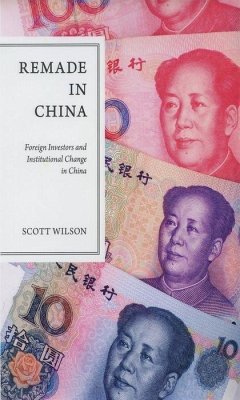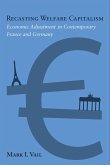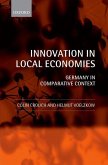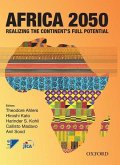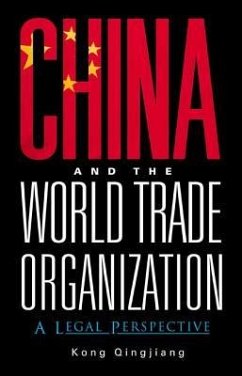Since opening to foreign investment in 1979, China has emerged as the leading investment site for multinational corporations. Remade in China looks beyond the macroeconomic effects of China's investment boom to analyze how foreign investors from the US, Japan, and other nations are shaping China's legal, labor, and business reforms. Wilson draws on interviews with nearly 100 foreign and local managers, attorneys, workers, and members of the business community to explain why Chinese laborers and firms have gravitated toward foreign models, especially US businesses and their institutions. Wilson uses the term "state-guided globalization" to describe how China has used foreign engagement to advance its domestic reform objectives and to enhance its role in international society. Rather than undermining state power, globalization actually has allowed China's state to push through difficult labor and legal reforms. Wilson concludes that Chinese policy makers drew lessons from foreign investors and foreign legal experts on how to introduce difficult labor market reforms in its state-owned enterprises and how to promote rule of law. Remade in China examines globalization and foreign investment in a different light, showing how these developments have helped to chart China's entry into international society. China's WTO accession agreement and international norms have established parameters by which to judge Chinese legal and business reforms. Although China's rise is a grave concern to the world, Remade in China asserts that Chinese leaders now see compliance with international rules as a means to secure more investment and to enhance their international legitimacy. Wilson provides a lucid and insightful analysis of how foreign and domestic actors, from political leaders to average laborers, have contributed to remaking China's institutions.
Political scientists who study economic institutions often focus on how resistant they are to change. Instead of dramatic change, they see path dependencies and national 'varieties' of capitalism. But what happens when economic globalizations gradually upends traditional economic arrangements? As Scott Wilson argues in Remade in China, that is precisely what has happened in the last decade in China. As foreign firms-particularly American ones-have penetrated deeper into the Chinese economy, they have also brought to new labor and legal institutions to China. The incremental penetration of these institutions in the Chinese economy has nudged China toward an American political-economic model. But the Chinese state has managed this convergence so that its own institutions have not been cast aside. Rather, through a process of state-guided globalization, the deepening relationship between China and Western economic and legal institutions has been more subtle, with domestic political actors ensuring that the alteration in course has not been too sharp. The convergence toward Western norms is evident throughout the economy, but the Chinese are active shapers of the process. Alongside a powerful argument about the importance of exogenous effects on domestic institutions, Wilson provides a richly detailed account of China's transforming economy, its labor markets, and the role of Chinese actors in managing the incorporation of American (and occasionally Japanese) norms.
Political scientists who study economic institutions often focus on how resistant they are to change. Instead of dramatic change, they see path dependencies and national 'varieties' of capitalism. But what happens when economic globalizations gradually upends traditional economic arrangements? As Scott Wilson argues in Remade in China, that is precisely what has happened in the last decade in China. As foreign firms-particularly American ones-have penetrated deeper into the Chinese economy, they have also brought to new labor and legal institutions to China. The incremental penetration of these institutions in the Chinese economy has nudged China toward an American political-economic model. But the Chinese state has managed this convergence so that its own institutions have not been cast aside. Rather, through a process of state-guided globalization, the deepening relationship between China and Western economic and legal institutions has been more subtle, with domestic political actors ensuring that the alteration in course has not been too sharp. The convergence toward Western norms is evident throughout the economy, but the Chinese are active shapers of the process. Alongside a powerful argument about the importance of exogenous effects on domestic institutions, Wilson provides a richly detailed account of China's transforming economy, its labor markets, and the role of Chinese actors in managing the incorporation of American (and occasionally Japanese) norms.

